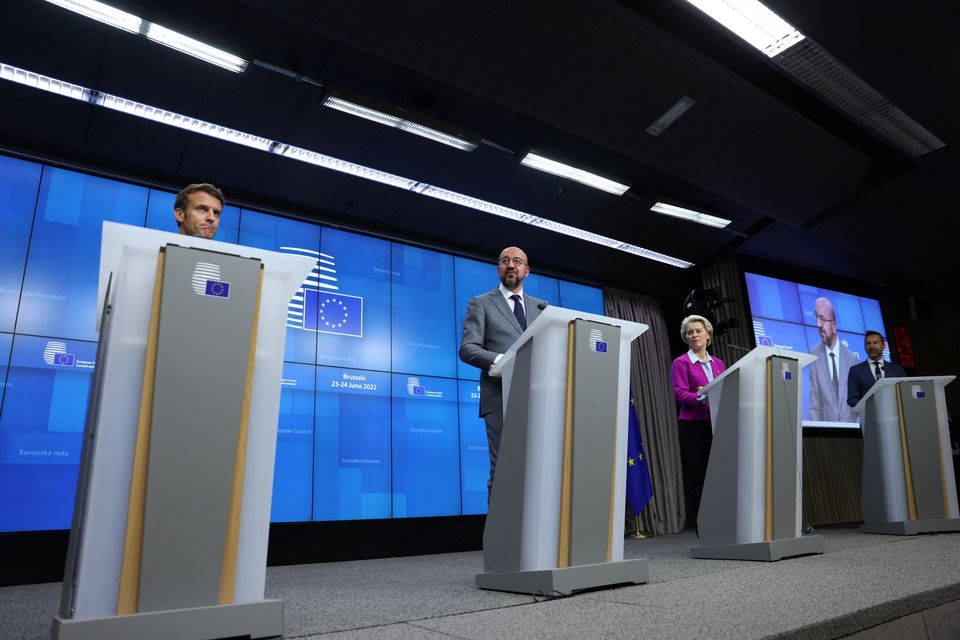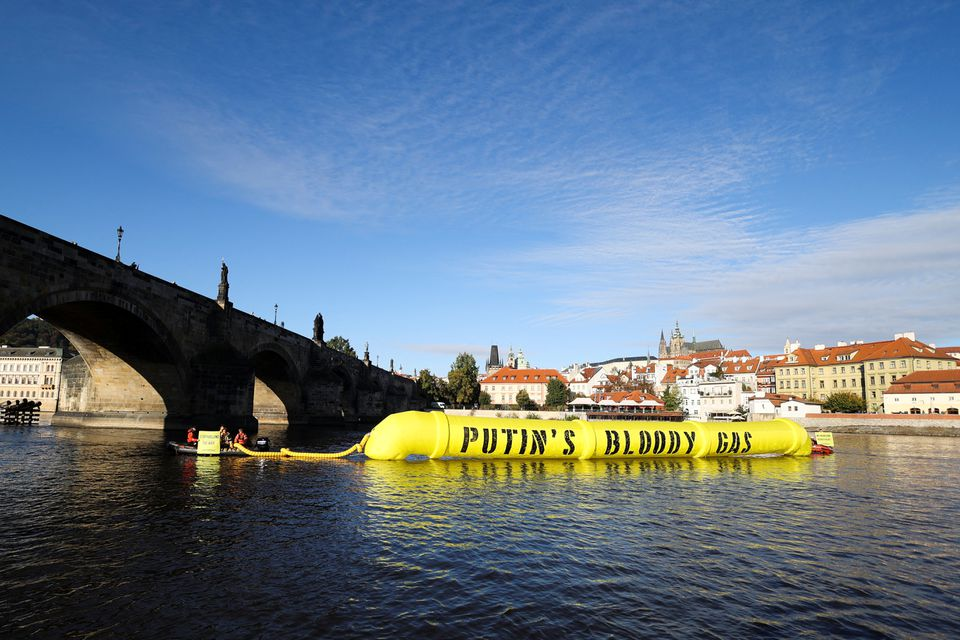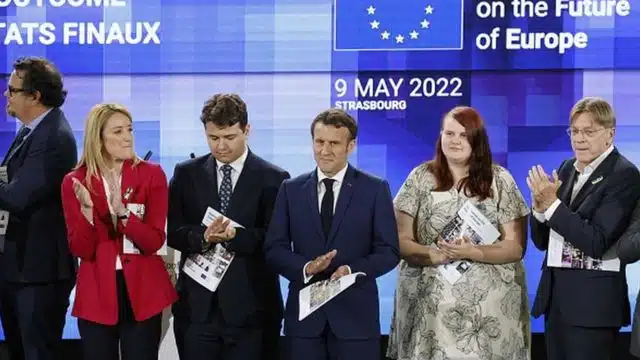
Source: Reuters
In a rare and symbolic meeting of 44 European nations excluding Russia, the European Union and its neighbours from Britain to Turkey met on Thursday to discuss common security and energy issues resulting from Moscow’s invasion of Ukraine.
The European Political Community (EPC), which was created by French President Emmanuel Macron and brings together the 27 members of the European Union and 17 other European nations, will hold its inaugural summit in Prague.
While several of them are awaiting membership in the bloc, only Britain has ever left.
German Chancellor Olaf Scholz stated, “All those present here know: Russia’s invasion on Ukraine is a cruel violation of the peace and security order we have over the last decades in Europe.
“We don’t accept the annexation of a portion of a neighbouring country.”
Alexander De Croo, the prime minister of Belgium, and Josep Borrell, the top diplomat in the EU, reiterated his remarks.
“This gathering serves as a means of searching for a new system devoid of Russia. Not that we want to expel Russia permanently, but this Russia, the Russia of (President Vladimir) Putin, is not a member “”Borrell” stated.
British Prime Minister Liz Truss emphasised their “strong agreement on the significance of likeminded European democracies presenting a united front against Putin’s violence” after visiting the summit’s host, Czech Prime Minister Petr Fiala.
After Brexit, when the EU and London are still at odds over trade concerns including Northern Ireland, some people hoped that her choice to attend the summit would lead to a more cordial relationship between the two.
Supporters of the event see it as a massive display of unity for a continent beset by numerous challenges, from the security repercussions of Russia’s conflict in Ukraine to terrible economic effects, including a severe energy shortage.
More electrical connections in Europe and cheaper gas prices, according to Macron, are his top priorities.
“We are in the same room. Frequently, the same past. And our future is meant to be written together, “he said. “I’m hoping we can have some shared projects.”
Beyond high pronouncements, there were questions over the forum’s actual objectives and deeds.
According to Latvia’s Prime Minister Krisjanis Karins, the symbolic meeting that the EU had billed as simply an “initial exchange” of opinions was not intended to result in any conclusions.
“The main objective is for everyone to come together since the Russian war in Ukraine affects us all in terms of security, as well as via our economies and the rising cost of energy. Working together is the only strategy for handling this, “added said.
The EPC was quickly derided by some as just another talking shop that would be challenging to administer because to its size, diversity, and several members’ long-standing rivalries, such as those between Greece and Turkey and Armenia and Azerbaijan.

Source: Reuters
On Friday, the 27 EU nations will meet separately. Tensions will be high due to Germany’s 200 billion euro ($197.50 billion) energy support package, which many of its partners believe will hurt competitiveness on the single market of the union.
The EU countries will discuss their disagreements over how to control rising energy costs that are impeding the post-COVID economic recovery when they gather to discuss how to cap gas prices.
Watch the video here to know more:













